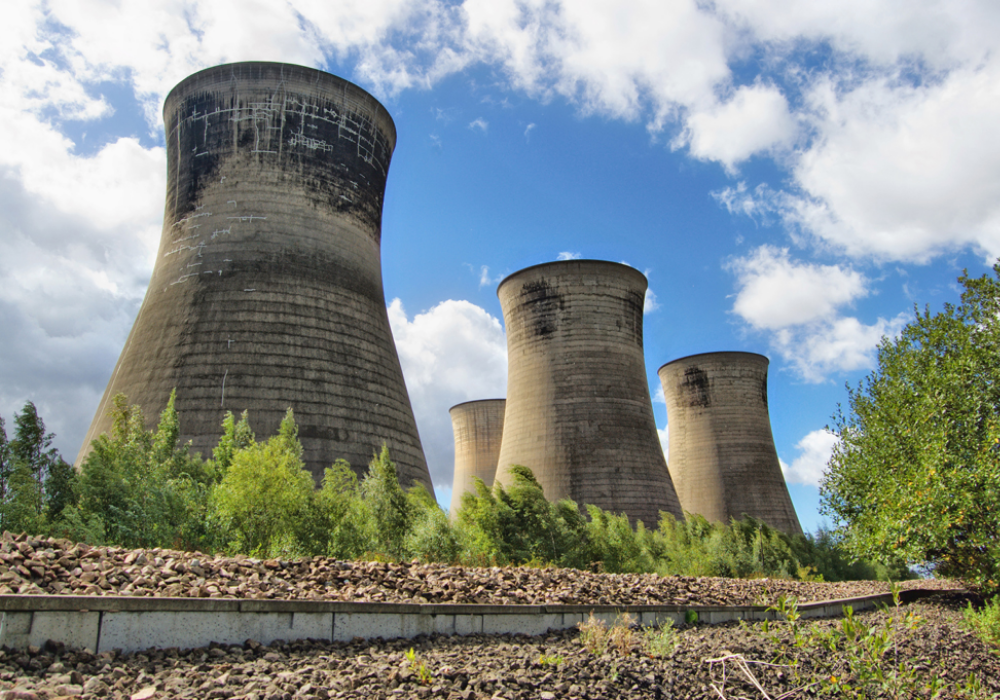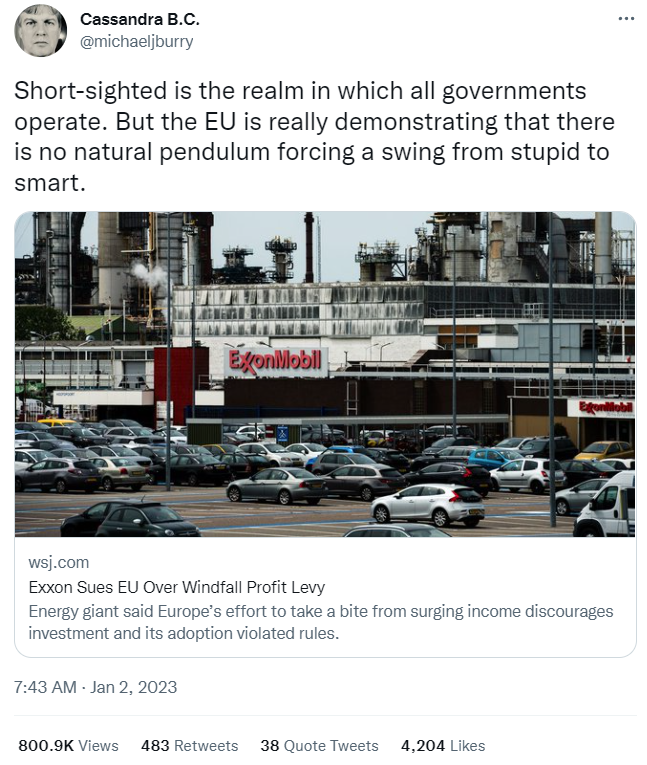Are windfall taxes such a good idea?
Windfall taxes have become popular with politicians. They seem like a convenient way to raise revenue while also scapegoating evil corporations for society’s problems. They are also controversial and have met with skepticism. Michael Burry, for example, has scorched them as “stupid” and “short sighted”. Windfall taxes can also be legally questionable: Exxon Mobil has sued to challenge the EU’s windfall tax.
Let us analyze the problems with windfall taxes to see what the controversy is about.
Bad precedent
The biggest issue is that windfall taxes set a dubious precedent. In 2022 and 2023, governments targeted energy companies. This was a response to high energy prices, which politicians painted as profiteering. This manifested in jingoistic terms, such as the UK creating an “unearned profits” tax. These euphemisms smack of Orwellian double-speak.
The issue is then: precisely when is it “appropriate” to impose a “windfall tax”? Against whom can a government “legitimately” impose such a tax? What is the limiting principle? Is there a limiting principle or is it acceptable for the government to simply deem when a profit is “unearned”?
The ‘windfall tax’ could apply equally to farmers during periods of high prices. Or banks when interest rates are high. Or doctors. Or lawyers. Or anyone else in demand. Indeed, the windfall taxes appear to belie a complete lack of understanding of the basics of supply and demand.
Without clear limits on authority, that authority ought not exist: Unlimited authority is open to abuse, arbitrariness, misconduct, and incompetence. Or, put differently: Your job could be next in the government’s sights.
Counter-productive
Windfall taxes are counter-productive. They are a response to high energy prices. But, they ignore the fundamental reason for why energy prices are high: a lack of supply.
Windfall taxes exacerbate supply shortages. This is clear from Exxon Mobil’s litigation in which they have specifically stated that the tax deters their investment. This is not a hollow argument. Total Energy cut investment in the UK following its windfall tax.
The tax also creates sovereign risk. Investors will hardly trust a government if that government will treat them as a personal piggy bank if they are successful. Ironically, this attacks business success, which creates economic growth and jobs, and which the government should encourage.
Misunderstands business
The windfall taxes further misunderstand two fundamental aspects of business.
First, they interrupt the ordinary supply/demand equilibrium. This is because they reduce the after tax income a company might expect from its production. In turn, this reduces the desirability of devoting resources to goods impacted by windfall taxes. That is, the marginal benefit of producing a windfall-tax-good is lower than that of any other good. The companies would then pay money out to shareholders rather than increase the quantity supplied.
Second, they ignore the business cycle. In the ordinary business cycle, there are positive and negative periods. Downturns are often associated with low profits. Firms must obtain profits in positive periods in order to off-set negative periods. This is the case in most commodities, including agricultural commodities and natural resources. By removing profits in good periods, regulators offset the natural counter-balance to bad periods.
The windfall taxes thus show little understanding of ordinary business practice and of economic cycles. However, this appears not to be major consideration for policy makers pursuing windfall taxes.
What then should regulators do?
Regulators must do more to encourage supply. This is a long-term project. Short-term knee-jerk policy decisions, which undermine supply, and create sovereign risk, are not a coherent solution.
This requires logical policy decisions. New supply can take years of capital expenditure and has a long payback period. Fossil fuel supply will not increase if companies fear the government will eliminate their industry, especially if the time period for such regulation is unknown or subject to change. Such regulations, and uncertainty, deter investment. Governments cannot demonize oil and gas on the one hand and then bemoan the lack of supply on the other.
Regulators might want to shift from fossil fuels, but this requires sensible policies that properly consider immediate supply needs. And, windfall taxes do little to support supply requirements.

